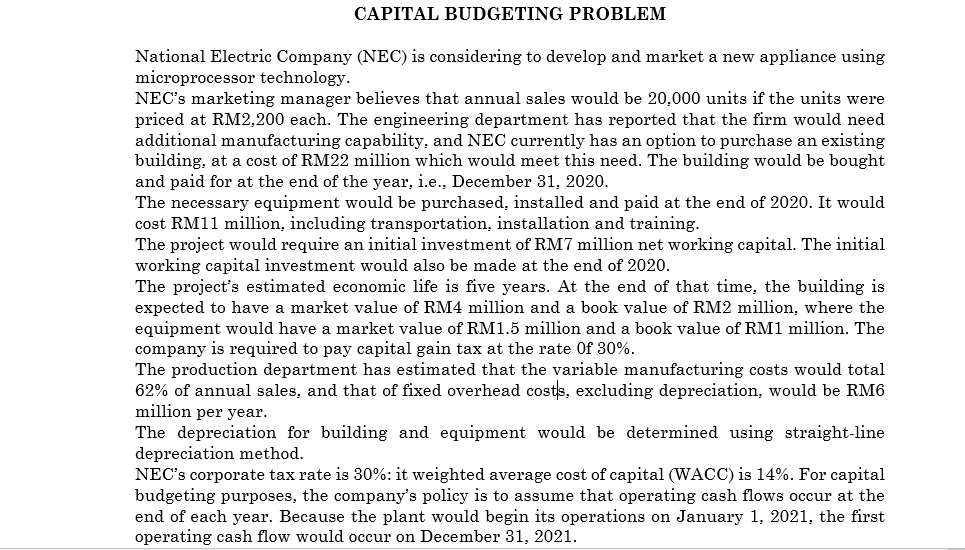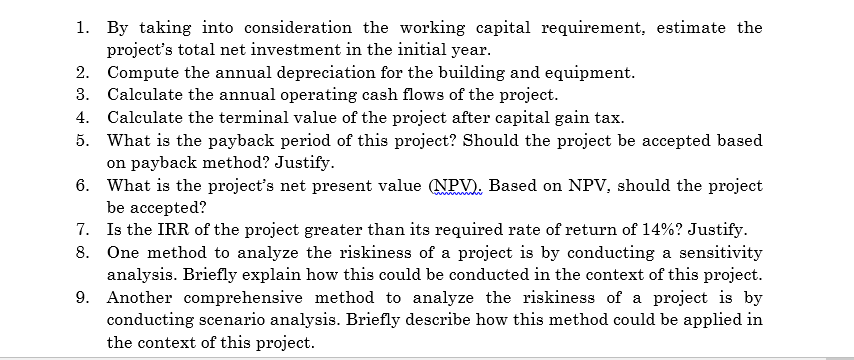

CAPITAL BUDGETING PROBLEM National Electric Company (NEC) is considering to develop and market a new appliance using microprocessor technology. NEC's marketing manager believes that annual sales would be 20,000 units if the units were priced at RM2.200 each. The engineering department has reported that the firm would need additional manufacturing capability, and NEC currently has an option to purchase an existing building, at a cost of RM22 million which would meet this need. The building would be bought and paid for at the end of the year, i.e., December 31, 2020. The necessary equipment would be purchased, installed and paid at the end of 2020. It would cost RM11 million, including transportation, installation and training. The project would require an initial investment of RM7 million net working capital. The initial working capital investment would also be made at the end of 2020. The project's estimated economic life is five years. At the end of that time, the building is expected to have a market value of RM4 million and a book value of RM2 million, where the equipment would have a market value of RM1.5 million and a book value of RM1 million. The company is required to pay capital gain tax at the rate of 30%. The production department has estimated that the variable manufacturing costs would total 62% of annual sales, and that of fixed overhead costs, excluding depreciation, would be RM6 million per year. The depreciation for building and equipment would be determined using straight-line depreciation method. NEC's corporate tax rate is 30%:it weighted average cost of capital (WACC) is 14%. For capital budgeting purposes, the company's policy is to assume that operating cash flows occur at the end of each year. Because the plant would begin its operations on January 1, 2021, the first operating cash flow would occur on December 31, 2021. 1. By taking into consideration the working capital requirement, estimate the project's total net investment in the initial year. 2. Compute the annual depreciation for the building and equipment. 3. Calculate the annual operating cash flows of the project. 4. Calculate the terminal value of the project after capital gain tax. 5. What is the payback period of this project? Should the project be accepted based on payback method? Justify. 6. What is the project's net present value (NPV): Based on NPV, should the project be accepted? 7. Is the IRR of the project greater than its required rate of return of 14%? Justify. 8. One method to analyze the riskiness of a project is by conducting a sensitivity analysis. Briefly explain how this could be conducted in the context of this project. 9. Another comprehensive method to analyze the riskiness of a project is by conducting scenario analysis. Briefly describe how this method could be applied in the context of this project








